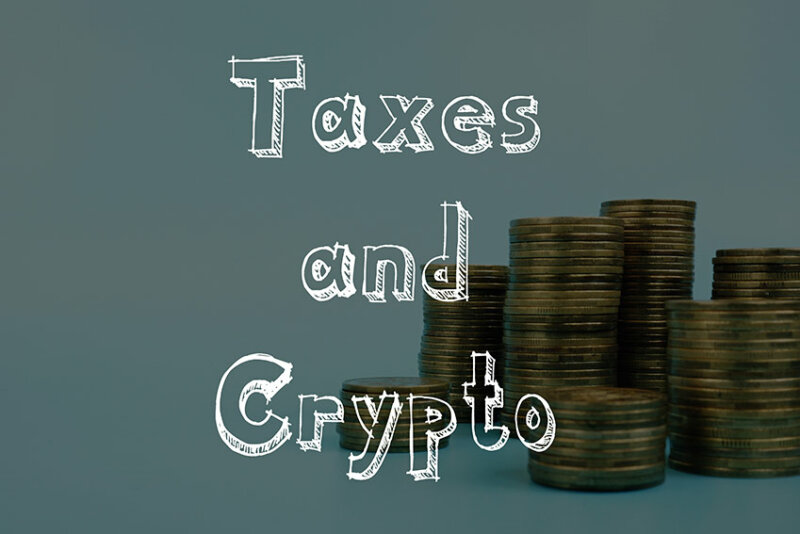Overview of the case law of the fiscal courts
In our last article, we reported on the ruling of the Fiscal Court of Baden-Württemberg (Finanzgericht Baden-Württemberg). As a result, the Fiscal Court of Baden-Württemberg found that cryptocurrencies are subject to income tax as economic assets when sold within the one-year speculation period if they are held as private assets (Section 22 No. 3 in conjunction with Section 23 (1) No. 2 of the German Income Tax Act (Einkommensteuergesetz – EStG)). A structural enforcement deficit that would lead to a denial of taxation was rejected by the Tax Court of Baden-Württemberg. The appeal initially filed with the Federal Fiscal Court (Case No. IX R 27/21) against the ruling has since been withdrawn (on 18 February 2022) and thus the ruling of the Fiscal Court of Baden-Württemberg applies (the ruling is final).
Table of Contents
Previously, there were proceedings at the Nuremberg and Berlin tax courts to suspend enforcement. In these proceedings, it was not possible to definitively decide the question of whether the sale of cryptocurrencies within the one-year speculation period is subject to income tax.
In addition to the existing decisions of the fiscal courts, there is a draft of a decree of the highest tax authorities of the federal states (hereinafter: “BMF letter”), which explains how cryptocurrencies are to be treated for income tax purposes (see part 1 & 2 for more information).
New ruling of the Fiscal Court of Cologne of Cologne
Confirmation of the ruling of the Fiscal Court of Baden-Württemberg
The Fiscal Court of Cologne (Finanzgericht Köln) confirmed the findings of the Fiscal Court of Baden-Württemberg. According to the Fiscal Court of Cologne, the purchase and sale or exchange of cryptocurrencies held as private assets for income tax purposes, i.e. in the specific case: Bitcoin, Etherium and Monero, is also taxable within the one-year speculation period.
Reasoning of the Fiscal Court of Cologne
Compared to the Fiscal Court of Baden-Württemberg, the Fiscal Court of Cologne’s reasoning is (even) more detailed. We have summarised the main reasons of the Fiscal Court of Cologne below:
- There is no enforcement deficit, as the statutory provision of Section 23 (1) sentence 1 no. 2 EStG does not contain any ineffectiveness, but there are factual difficulties of review by the tax authorities. Therefore, the Fiscal Court of Cologne does not consider the taxation of crypto securities to be unconstitutional in this respect.
- Cryptocurrencies fulfil the requirements of the term “economic good” within the meaning of Section 23 (1) sentence 1 no. 2 EStG. In its very detailed explanations of the concept of economic good, the Fiscal Court of Cologne also clearly contradicts the statements of the Fiscal Court of Nuremberg in a decision to suspend enforcement. The Fiscal Court of Nuremberg had expressed doubts about the taxation of cryptocurrencies as a private sale transaction within the one-year speculation period.
- The purchase, exchange or sale of cryptocurrencies are also acquisitions and disposals, as required by the provision of § 23 para. 1 sentence 1 no. 2 EStG.
- There is also no lack of tax attributability of the cryptocurrencies to a taxpayer (§ 39 AO).
What if the date of acquisition can no longer be determined?
The following point of the Fiscal Court of Cologne case is also noteworthy. For cryptocurrency exchanged in 2017, the time of acquisition in 2016 could not be determined and, thus, also whether the exchange took place within the one-year speculation period. On this point, the Fiscal Court of Cologne upheld the taxpayer’s claim and rejected taxation, although the tax authorities had also taken this view before the ruling was announced.
And now?
Appeal pending before the Federal Fiscal Court
As we mentioned at the beginning of this article, the appeal against the ruling of the Fiscal Court of Baden-Württemberg was withdrawn, so that a review of the ruling of the Fiscal Court of Baden-Württemberg by the Federal Fiscal Court (Bundesfinanzhof – BFH) is no longer possible.
An appeal against the ruling of the Fiscal Court of Cologne has been lodged with the BFH. This means that the BFH will decide whether the ruling of the Fiscal Court of Cologne is correct. It is to be hoped that this time the appeal proceedings will be pursued and the question finally decided by the BFH.
What do the rulings of the tax courts mean for my income tax return?
Taxpayers should declare their income from the purchase and sale (incl. exchange) of cryptocurrencies in their income tax returns now, at the latest, due to the now legally binding ruling of the Fiscal Court of Baden-Württemberg, in order to avoid being suspected of having intentionally or negligently failed to declare income (possible tax evasion or negligent tax evasion). As in the case of the Fiscal Court of Cologne, taxpayers can file an objection against the income tax assessment in a second step and apply for the suspension of proceedings (§ 363 AO) until a decision is made. Until a decision is made by the BFH, the taxpayer does not need to substantiate the objection.
A glimmer of hope for cryptocurrencies acquired many years ago is that, according to the Fiscal Court of Cologne, the failure to determine the acquisition date apparently means that no profit from the sale of the cryptocurrency can be taxed. However, the ruling does not state the reason for the lack of determination of the acquisition date. However, this special case should not lead to taxpayers deliberately not keeping or even destroying information and evidence on the time of acquisition, as in this case the taxpayer is threatened with an estimate by the tax office. If acquisition costs cannot be determined, this circumstance should nevertheless be disclosed in the income tax return.




